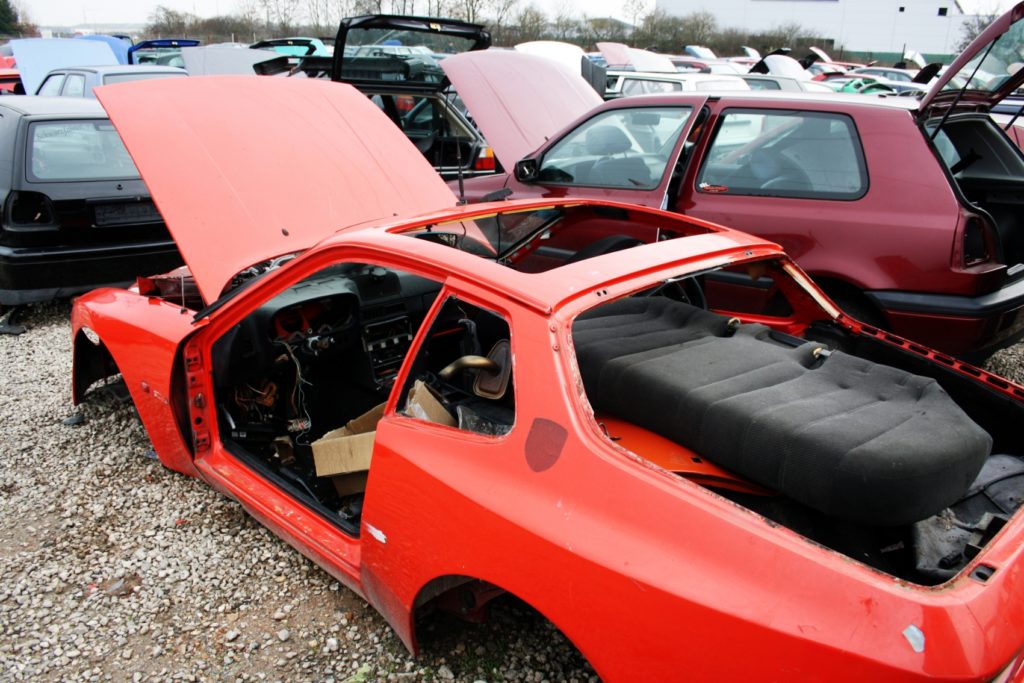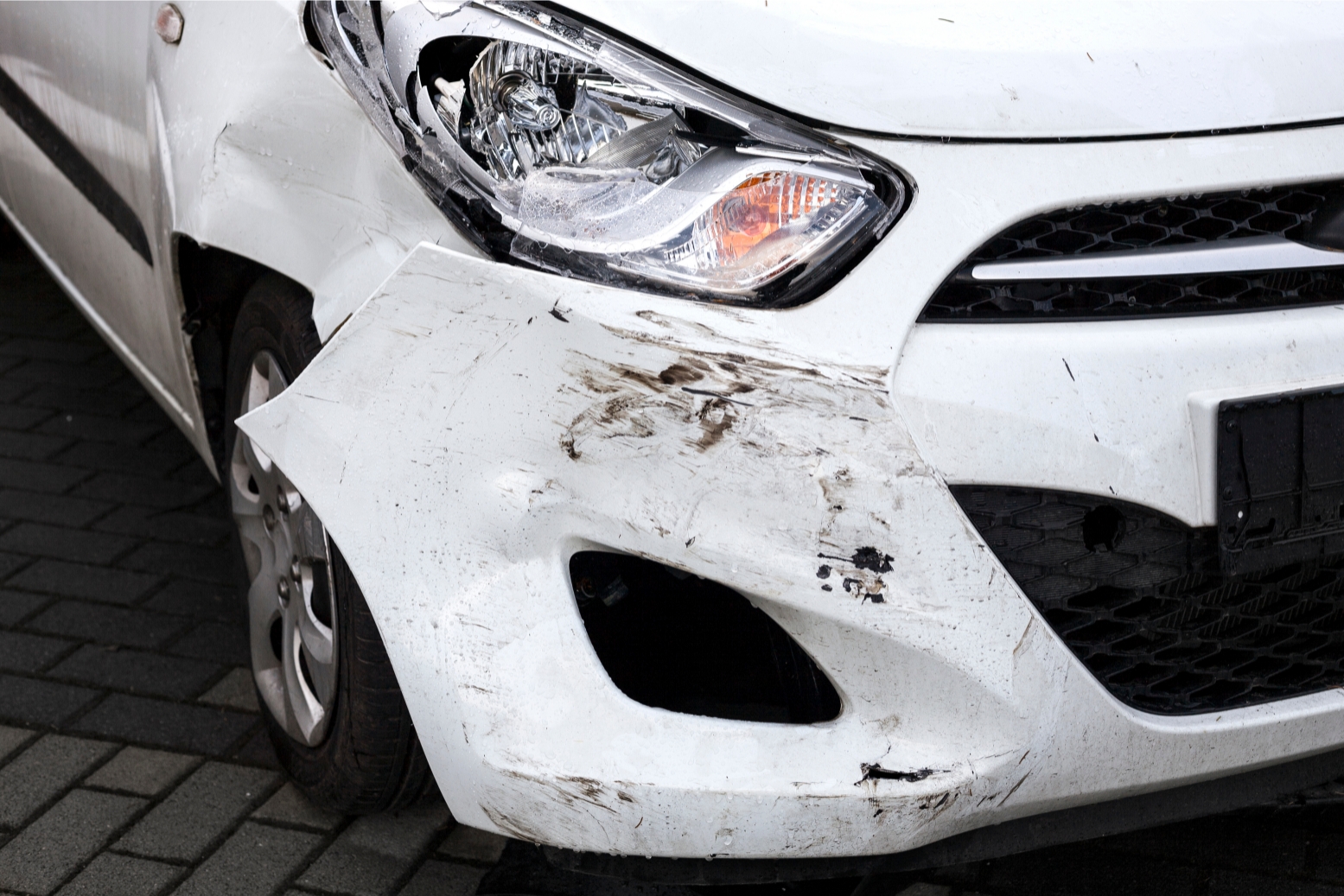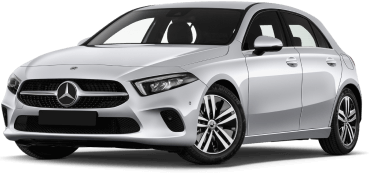Buying a Scrapped Car

Purchasing a scrapped car can offer an enticing opportunity to acquire a vehicle at a significantly reduced price. However, it is essential to understand that this process comes with various considerations, risks, and potential challenges.
To ensure a successful purchase and avoid potential pitfalls, it is crucial to familiarise yourself with the process, legalities, and important factors associated with buying a scrapped car. In this guide, we will provide you with valuable information to help you make an informed decision when considering the purchase of a scrapped car.
What is a Scrapped Car?
A scrapped car refers to a vehicle that has been declared unfit for the road due to various reasons, such as significant damage from accidents, natural disasters, or other factors. These cars are often categorised as salvage or salvage title vehicles.
Understanding the categories associated with scrapped cars is crucial when considering a purchase, as it helps determine the potential for repair and associated costs. Here are the common car damage categories used to classify scrapped cars:
- Category A: These vehicles have suffered extensive damage and are considered irreparable. They are unsafe for road use and can only be sold for scrap. Category A cars usually have no salvageable parts.
- Category B: Cars in this category also have significant damage, but some of their parts can still be salvaged and reused. However, the vehicle as a whole is deemed unfit for the road and cannot be repaired.
- Category S: Cars classified as Category S have sustained structural damage that can be repaired. However, the costs of repairs would exceed the value of the vehicle itself. These cars may be suitable for repair by individuals with the necessary skills and resources.
- Category N: Vehicles in this category have non-structural damage, such as electrical or mechanical issues. Although they can be repaired and returned to the road, the costs of repairs are still significant and may outweigh the value of the vehicle.
It’s important to note that these categories may vary depending on the country or region. Therefore, it is advisable to refer to official government regulations, automotive industry publications, or authoritative websites specific to your location to understand the exact definitions and classifications used in your area.
Legal Considerations and Documentation
Vehicle Title and Ownership
When purchasing a scrapped car, it is crucial to verify that the vehicle has a clear title and is not associated with any legal or financial encumbrances. Clearing any outstanding liens or debts on the vehicle is essential to ensure that you become the rightful owner. Obtaining a clear title will help you avoid potential legal issues and complications in the future. To check the vehicle’s title and ownership status, consider a comprehensive scrapped car check.
To transfer the ownership of a scrapped car, follow these general steps:
- Obtain the necessary documentation: Request the seller to provide the original title, registration documents, and any other supporting paperwork specific to your region or country.
- Complete the transfer process: Depending on your location, you may need to speak to the DVLA or equivalent authority to complete the ownership transfer. This typically involves submitting the required documents, paying transfer fees, and updating the vehicle’s registration.
Salvage Titles and Insurance
A salvage title is a designation given to a scrapped car by the relevant authorities. It indicates that the vehicle has been significantly damaged or declared a total loss by an insurance company. Salvage titles can impact the value and insurability of the car.
When buying a scrapped car with a salvage title, it’s important to consider the following:
- Value: A vehicle with a salvage title is generally worth less than its non-salvage counterparts due to the prior damage it has sustained.
- Insurance: Insuring a scrapped car can be challenging. Traditional insurance companies may be reluctant to provide full coverage or may offer limited coverage options. Salvage car insurance, specifically designed for such vehicles, may be available and can offer suitable coverage for your needs.
Vehicle History and Identification
Obtaining a comprehensive vehicle history report and MOT history check is essential when purchasing a scrapped car. These checks provide valuable information about the car’s past, including previous accidents, repairs, or any other reported incidents. This report can help you assess the extent of the damage, spot a fake VIN, and make an informed decision about the purchase.
Conducting a VIN (Vehicle Identification Number) check is crucial. The VIN is a unique identifier assigned to each vehicle, and checking it can help verify the vehicle’s identity and history. Once you find the car’s VIN, you can access records of reported theft, previous damage claims, and other relevant details.
Mechanical and Structural Considerations
Inspection by a Professional Mechanic
Before finalising the purchase of a scrapped car, it is highly recommended to have a professional mechanic inspect the vehicle thoroughly. Their expertise can help identify any hidden damage, mechanical issues, or potential problems that may not be apparent to an untrained eye. A professional inspection will provide valuable insights into the overall condition of the car and help you make an informed decision. Key areas that should be inspected include:
Engine: Assess the engine’s condition, including any signs of damage or potential issues with the cooling system, oil leaks, or abnormal noises.
Suspension: Check for signs of wear, damage, or misalignment in the suspension components, as these can affect the vehicle’s handling and safety.
Brakes: Ensure the braking system is in good condition, with sufficient brake pad thickness, functional ABS (anti-lock braking system), and properly functioning brake callipers.
Electrical System: Verify that the electrical components, such as lights, indicators, wipers, and controls, are in proper working order.
Structural Integrity: Examine the overall structure of the car for any signs of previous repairs, frame damage, or rust that may compromise its safety or longevity.
Estimating Repair Costs
Understanding the extent of damage and estimating repair costs is crucial when buying a scrapped car. Consider the following factors to assess potential repair expenses:
Replacement Parts: Research the availability and cost of necessary replacement parts. Depending on the make, model, and extent of damage, some parts may be challenging to find or expensive to acquire.
Labour: Labor costs for repairing a scrapped car can vary based on the complexity of the work involved. Consult with multiple repair shops or professionals to obtain estimates and compare the costs.
Specialised Repairs: Some repairs may require specialised expertise, such as welding for structural repairs or specific knowledge for electrical system repairs. Consider the availability and costs of such specialised services.
Obtaining multiple repair estimates will help you gain a comprehensive understanding of the potential repair costs and make an informed decision regarding the feasibility of restoring the vehicle.
Safety and Roadworthiness
Ensuring the scrapped car meets safety standards and regulations are of utmost importance before considering it roadworthy. Depending on the extent of damage, the vehicle may require modifications or repairs to meet safety requirements. Consider the following:
Airbags: Verify if the airbag system is functional, as deploying airbags can be costly and may affect the overall safety of the car.
Structural Damage: Address any significant structural damage to restore the car’s integrity and ensure it can withstand collisions.
Electrical Issues: Address any electrical problems to ensure the car’s safety systems, lighting, and other vital components function properly.
Ensure that the scrapped car meets all necessary safety standards and regulations to be roadworthy. Depending on the severity of the damage, certain repairs or modifications may be required to make the vehicle safe for driving. Remember to check the salvage history before making a purchase.
How Much Should You Pay For Scrapped Cars?
Determining the appropriate price for a scrapped car requires considering various factors such as the make, model, age, and overall condition of the vehicle. It is crucial to conduct a thorough assessment of the car’s repair needs and estimate the associated costs to ensure you pay a fair price. Here are key points to consider:
Make, Model, Age, and Condition:
The make, model, and age of the scrapped car significantly influence its value. Vehicles from reputable brands, popular models, and newer releases tend to have higher market value even in their scrapped state. Additionally, the overall condition of the car, including mileage, exterior damage, and interior wear, will impact its worth.
Cost of Repairs and Necessary Modifications:
Evaluate the repairs required to make the scrapped car safe and reliable for driving. Consider the estimates provided by professionals for repairing structural damage, addressing mechanical issues, and replacing damaged components. Deducting these repair costs from the market value of the car in its non-scrapped state will help determine a reasonable purchase price.
Market Research and Comparison:
Conduct market research to determine the average selling prices of similar scrapped cars in your region. Online platforms, salvage car auctions, and local classified ads can provide insights into current market values. Comparing prices will help you gauge the fair market range for the scrapped car you’re interested in.
Negotiation and Bargaining:
Keep in mind that the price for a scrapped car is often negotiable. Use the information gathered from your inspection, research, and repair cost estimates as leverage during negotiations. Highlight any significant issues or required repairs to justify a lower purchase price.
When buying a scrapped car, it is essential to understand the legal considerations, obtain proper documentation, conduct thorough inspections, estimate repair costs, and ensure the safety and roadworthiness of the vehicle before finalising the purchase. By following these steps, you can make an informed decision and determine a fair price based on the make, model, age, condition, and necessary repairs of the scrapped car.
Factors to Consider When Buying a Salvaged Car
When purchasing a salvaged car, there are several important factors to consider to ensure a successful and satisfying purchase. Here are additional points to keep in mind:
The extent of Damage:
Carefully assess the extent of damage to the salvaged car. Understand the nature of the damage, whether it is cosmetic, mechanical, or structural. Evaluating the severity of the damage will help determine if the repairs are within your budget and skill level, or if professional assistance is required.
Repair Expertise and Resources:
Consider your own mechanical skills and access to repair resources. If you have the necessary expertise or access to professionals who can efficiently repair the salvaged car, it can reduce overall costs. However, if extensive repairs are required and you lack the expertise, be prepared to seek professional help, which will incur additional expenses.
Availability of Parts:
Check the availability and cost of replacement parts for the specific make and model of the salvaged car. Some salvaged cars may have rare or discontinued parts, making repairs more challenging and costly. Ensure that parts needed for repairs can be sourced easily and at reasonable prices.
Vehicle’s History:
Obtain a comprehensive vehicle history report to understand the car’s past, including any reported accidents, repairs, or damage. This report will help you assess the overall condition of the vehicle and make an informed decision about its purchase.
The Pros and Cons of Buying a Salvaged Car

When considering buying a salvaged car, it’s essential to weigh the advantages and disadvantages. Here are some key points to consider:
Pros:
- Lower purchase price: Salvaged cars are often priced significantly lower than their non-salvaged counterparts, allowing for potential cost savings.
- Value for money: With proper repairs and maintenance, a salvaged car can provide good value and meet your transportation needs at a lower cost.
- Bargain potential: The salvage title can provide negotiation opportunities to secure a better deal on the purchase price.
Cons:
- Potential hidden damage: Salvaged cars may have underlying damage that is not immediately visible. Thorough inspections by professionals are crucial to uncovering any hidden issues.
- Higher insurance premiums: Insuring a salvaged car may come with higher premiums due to perceived risks and potential repair costs.
- Limited resale value: Reselling a salvaged car can be challenging, as potential buyers may be hesitant due to its history and perceived value.
Purchasing a scrapped car can be a bargain, given its price advantage. However, it requires diligent research and checks to ensure the vehicle meets your budget and expectations. Investing in a full car history report for £9.95 could save you from unforeseen expenses in the long run.
Frequently Asked Questions
Purchasing a salvaged car can offer several advantages and opportunities for car buyers. Here are some reasons why you might consider buying a salvaged car:
Price and Value for Money:
Salvaged cars are often priced significantly lower than their non-salvaged counterparts. This reduced price can provide an opportunity to own a vehicle that might otherwise be outside your budget. With proper repairs and maintenance, a salvaged car can offer good value for money, allowing you to own a vehicle that meets your transportation needs at a more affordable price.
Bargain Potential:
Due to their salvage title status, these cars can be perceived as having less value in the market. This situation can create a bargaining advantage for buyers, as sellers may be more willing to negotiate on the price. By carefully assessing the extent of damage, and repair costs, and conducting thorough inspections, you can negotiate a better deal and potentially secure a bargain.
The process of registering a salvaged car varies depending on the jurisdiction and local regulations. However, in many places, it is possible to register a car with a salvage title. Here is some general information:
Vehicle Identity Check (VIC) No Longer Needed:
In some countries, such as the United Kingdom, the Vehicle Identity Check (VIC) requirement was abolished in October 2015. This means that to register a car with a salvage title, you need to own a Category C (or equivalent) vehicle and apply for a V5C (log book) from the Driver and Vehicle Licensing Agency (DVLA) or the relevant authority in your country.
Specific Requirements and Inspections:
While a vehicle identity check may no longer be needed, there may still be specific requirements and inspections involved in the registration process. These requirements can vary by jurisdiction and may include safety inspections, emissions testing, or other checks to ensure the vehicle meets roadworthy standards.
Yes, it is generally required to have insurance to drive a car on the road. However, insuring a car with a salvage title can present some challenges. Here are a few points to consider:
Limited Insurance Companies:
Some traditional insurance companies may be hesitant to provide coverage for salvaged cars due to the perceived higher risk associated with their history of damage. However, there are insurance providers that specialise in offering coverage for cars with salvage titles.
Potential Premium Increase:
When insuring a salvaged car, expect that the premiums may be higher compared to insuring a non-salvaged vehicle. The increased premium reflects the perceived risk and potential repair costs associated with the car.
It is important to shop around and obtain quotes from multiple insurance companies specialising in salvaged cars to find the best coverage options available to you.
Remember to thoroughly research and understand the specific regulations, requirements, and insurance options applicable in your jurisdiction when considering the purchase and registration of a salvaged car. Seeking advice from professionals and consulting with local authorities will ensure compliance with the necessary legalities and help you make an informed decision.






